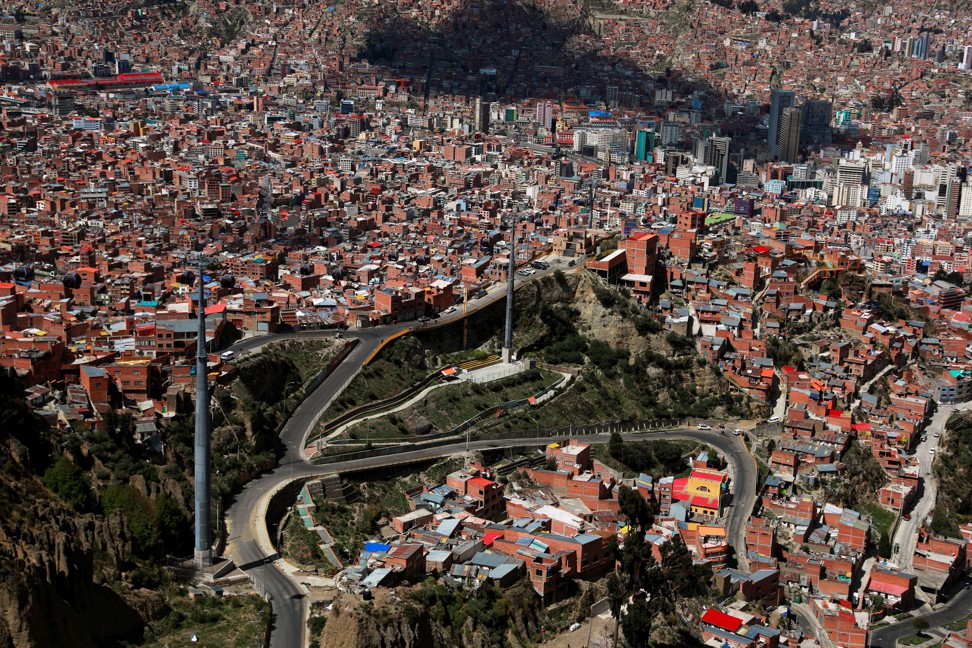
Bolivian government says violent unrest is ‘down by half’ following ousting of former president Evo Morales
- The violence has claimed at least 23 lives and left scores injured since late October, according to the Inter-American Commission on Human Rights
Bolivia’s interim government said Sunday that the violent demonstrations roiling the country were slowing, while peasant groups close to former president Evo Morales demanded provisional leader Jeanine Anez’s resignation.
The number of trouble spots is “down by half”, interim Interior Minister Arturo Murillo said.
The violence has claimed at least 23 lives and left scores injured since late October, according to the Inter-American Commission on Human Rights.
The protests that forced Morales to seek asylum in Mexico have continued, primarily around the central city of Cochabamba, where violent clashes erupted Friday between coca growers and both army troops and police. Nine people died, the IACHR reported, though the government has recognised only five of them.

Murillo angered opposition groups by suggesting that the coca growers might even have shot some of their own supporters to generate sympathy.
But Thomas Becker, an American lawyer with the International Human Rights Clinic at Harvard University, rejected that theory. He said he had been to the morgue in the city of Sacaba, where the victims were taken, and that all nine had been shot.
Becker told AFP by phone that he had interviewed 50 people in Sacaba and that all insisted that none of the civilian protesters had firearms.
From Mexico, Morales lashed out at the killings, tweeting that “these crimes against humanity … must not go unpunished.”
Ousted Bolivian leader Evo Morales ready to stand aside in new elections
The IACHR decried as “grave” a decree from the Anez government exempting the armed forces from criminal responsibility as they preserve public order. The rights group, an autonomous arm of the Organisation of American States, said the effect of the decree could be to “stimulate violent repression”.
Presidential minister Jerjes Justiniano insisted the decree did not give troops “a licence to kill” but merely provided constitutional underpinning for their efforts to keep the peace.

Anez, the 52-year-old former deputy speaker of the Senate, declared herself the country’s interim president on Tuesday, filling a vacuum left by Morales’ departure and the resignations of several ministers.
Although demonstrations were generally waning on Sunday, protesters blockaded a highway from El Alto, about 10 kilometres (six miles) from Bolivia’s administrative capital, raising the spectre of fuel shortages. The Senkata refinery in El Alto furnishes the La Paz region with petrol and natural gas.
Food shortages are being reported in many regions. The interim government sent a plane with 35 tonnes of meat to La Paz and promised to provide 25 tons of chicken, Justiniano said.
But pressure on the government remains high, and six coca-growers’ unions in Chapare, a Morales stronghold, late Saturday demanded Anez’s resignation “within 48 hours” and fresh elections within 90 days.
Unrest in Bolivia first erupted after Morales – the country’s first indigenous president – was accused of rigging the results of the October 20 polls to gain re-election.
He resigned and fled to Mexico after losing the support of the security forces.

.png?itok=arIb17P0)